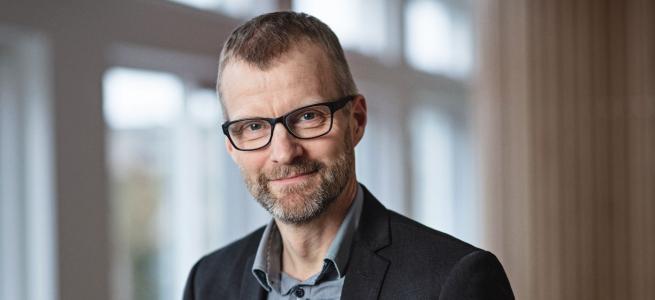

Dear RUC PhD students
Thank you for the Open Letter. It is both balanced and constructive and calls for an equally constructive reply, although I fear that my reply will not answer all your concerns. I hope my response can be part of a dialogue between us in the coming months in the context of Roskilde Doctoral Schools.
The corona crisis is a challenge that is unlike many of the other challenges we face as a university, since it is pervasive and affects everybody across the board, but in different ways and to varying degrees. And the crisis is still unfolding, which means that the problems, that it creates, accumulate, although in some areas the pressure has become less intense as laboratories have partially reopened. As PhD students, you are in the formative years of your career, so it is particularly important that we help minimize the immediate and long-term impacts of the corona shutdown.
In an open letter to PhD students at the Danish universities, Anders Bjarklev, DTU Rector and chair of the Danish Rectors’ Conference (Rektorkollegiet) acknowledged the many requests for paid extensions, but stated that a general paid extension of PhD projects would constitute an insurmountable economic challenge for research institutions.
We have only just begun the process of addressing the multiple challenges that you – and other young researchers – experience. Although you and your supervisors will be key to many of the concrete decisions that can help reestablish a firm footing for your projects, it is a shared responsibility for the University to find manageable, flexible and bearable solutions in the coming months.
Universities Denmark (Danske Universiteter) have therefore called for a sector-wide solution in its dialogue with our ministry. RUC supports this initiative, given our current economic situation and the uncertain long-term economic impact of the shutdown.
We will of course do our utmost to address the challenges that you face as RUC PhD students. At the university level, we are mapping the consequences of the shutdown in key dimensions of research: data collection, internationalization, PhD education, work environment, etc. and we engage in an ongoing dialogue with Universities Denmark, the Ministry of Higher Education and Science, and other relevant decision makers to share information and coordinate joint initiatives. Initially, the opening of laboratories was a key issue, but there has also been a focus on access to physical library resources.
In relation to what you call ‘fundamental disruptions’, our departments have begun a review of externally funded projects in a dialogue with the projects’ principal investigators to identify some of the major challenges such as disruption of data collection, cancellation of international activities, etc. This process is accompanied by a sector-wide dialogue with major public and private funding bodies. Fortunately, most funding institutions have a profound understanding of the situation, and demonstrate flexibility and willingness to negotiate deadlines and other terms – although typically they do not provide additional funding.
Within RUC’s four Doctoral Schools, several initiatives have been launched to deal with the shutdown situation: offering PhD courses online (although there were some cancellations early on), moving seminars online, having frequent informal meetings with PhD students online, and addressing the need for flexibility in half-year evaluations and in relation to other formal requirements. These local initiatives are supported by Roskilde Doctoral Schools, which have formulated a set of interim guidelines to help PhD students and their supervisors navigate the formal requirements of the Danish PhD Order.
However, we have only just begun the process of addressing the multiple challenges that you – and other young researchers – experience. Although you and your supervisors will be key to many of the concrete decisions that can help reestablish a firm footing for your projects, it is a shared responsibility for the University to find manageable, flexible and bearable solutions in the coming months.
I will continue the dialogue with the Heads of our Doctoral Schools to consider shared initiatives beyond the interim guidelines. I will also continue the dialogue with the four Heads of Department concerning the review of research projects and the dialogue with funding partners to search for viable solutions.
Finally, we will continue the dialogue within Universities Denmark and other key actors in the university field to find sector-wide solutions and, most importantly, a reopening of Danish universities as soon as possible.
Best wishes,
Peter Kjær, Prorector